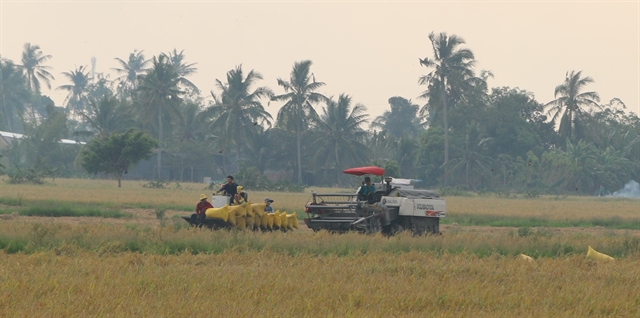 Society
Society

 |
| Farmers harvest rice in Bạc Liêu Province. — VNA/VNS Photo Tuấn Kiệt |
BẠC LIÊU — The Cửu Long (Mekong) Delta province of Bạc Liêu is developing agriculture relying on its advantages and adopting advanced techniques to increase yield, quality and efficiency.
According to Lưu Hoàng Ly, director of its Department of Agriculture and Rural Development, the province aims to improve the incomes and lives of people involved in agriculture.
It plans to develop organic agriculture and processing and a hi-tech zone for breeding shrimp.
“The province will create favourable conditions to attract investments in the hi-tech agriculture zone, and, based on its development, create motivation for developing others,” he said.
Bạc Liêu is the country’s second largest shrimp producer after neighbouring Cà Mau Province.
It plans to establish at least 10 hi-tech aquaculture zones on a combined 4,070ha by 2030.
They will focus on black-tiger shrimp, white-legged shrimp, mud crabs, and bivalve mollusc.
For shrimp farming, the province will prioritise intensive and super intensive methods and the use of technology and developing clean farming methods.
One of the methods, shrimp – rice farming, involves farmers growing rice in the rainy season and raising shrimp in the dry season on the same fields.
The province will adopt VietGAP, GlobalGAP, organic, or Global Aquaculture Stewardship Council standards in aquaculture.
It also plans to have 100,000ha of large-scale rice fields with farmers signing contracts with companies to guarantee outlets and steady prices.
The department has sought funds to develop organic rice farming models on 10,000ha based on VietGAP standards by 2025.
It is also developing farming co-operatives and co-operative groups that will link up with processing companies.
It will expand export markets and expects to export US$2 billion worth of agricultural, seafood and forestry products annually by 2030.
It also aims to increase by then the income of rural people by 2.5 – 3 times compared to 2020. — VNS




